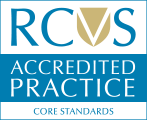As a dog owner, keeping your pet healthy is always a top priority. One condition that often takes people by surprise is kennel cough, a highly contagious respiratory illness in dogs. With the growing popularity of doggy daycares, boarding kennels, training classes, and playdates at the park, it’s important to understand how kennel cough spreads and what you can do to protect your pup.
What is kennel cough?
Canine kennel cough, officially known as canine infectious tracheobronchitis, is a common upper respiratory infection in dogs.
It’s similar to a chest cold in humans and is usually caused by a combination of viruses and bacteria, most notably Bordetella bronchiseptica.
Dogs of all breeds and ages can contract it, especially when spending time in close contact with other dogs.
Causes of kennel cough in dogs
The illness is typically caused by a mix of pathogens, including:
- Bordetella bronchiseptica (bacterial)
- Canine parainfluenza virus
- Canine adenovirus
- Other airborne viruses and bacteria
These irritate the lining of a dog’s respiratory tract, leading to the characteristic hacking cough.

How does kennel cough spread?
Kennel cough is highly contagious, particularly in environments where many dogs gather, such as:
- Boarding facilities and kennels
- Doggy daycare
- Grooming salons
- Dog parks
- Training classes and indoor dog events
It spreads through airborne droplets, direct dog-to-dog contact, and contaminated surfaces such as bowls or toys. Dogs may begin showing symptoms 3–10 days after exposure.
Symptoms of kennel cough
Symptoms can range from mild to more severe and may include:
- A dry, hacking cough (sometimes described as honking)
- Gagging or retching
- Sneezing and nasal discharge
- Lethargy
- Loss of appetite (in more serious cases)
- Mild fever
While most healthy dogs recover on their own, puppies, elderly dogs, or those with weakened immune systems may develop more serious conditions like pneumonia.
When is kennel cough most common?
Kennel cough can occur year-round but often spikes in autumn and winter, when colder, damper weather and increased use of indoor facilities allow it to spread more easily.
It’s also more common during holiday seasons, when dogs are frequently boarded or placed in daycare.

Preventing kennel cough
The Bordetella vaccine can significantly reduce the risk of kennel cough. It’s available in three forms:
- Intranasal
- Oral
- Injection
Though not 100% effective (because kennel cough can be caused by multiple pathogens), vaccination greatly lowers the severity and likelihood of infection. Many boarding facilities and daycares require proof of up-to-date vaccines before admitting dogs.
Tips for dog owners
To help protect your dog:
- Keep their vaccinations up to date, especially before daycare, kennels, or frequent group play.
- Avoid close contact with coughing dogs.
- Clean and disinfect bowls, toys, and bedding regularly.
- Choose licensed, well-ventilated kennels and daycares that monitor dog health.
- If your dog shows symptoms, consult your vet and avoid social activities until they’re cleared.
Final thoughts
While kennel cough is usually not serious, it can be uncomfortable for your dog and disruptive for you. By staying informed, keeping up with vaccinations, and being mindful about your dog’s social interactions, you can greatly reduce the risk of this common illness.
With a few simple precautions, your dog can continue to enjoy playdates, walks, and adventures – happily and cough-free.



